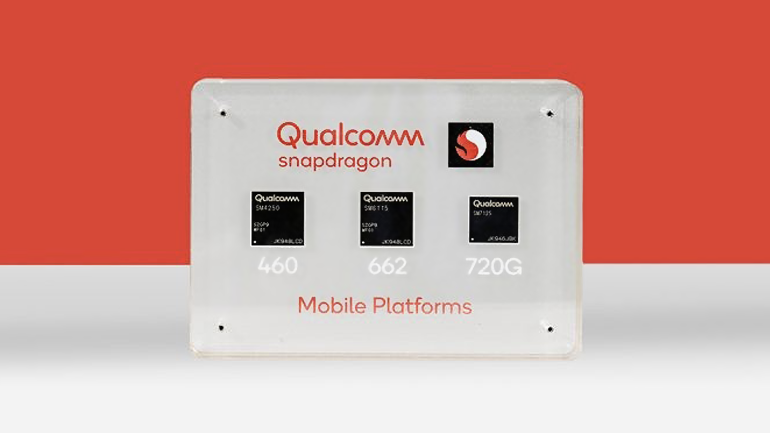Hailo raises $60 million to accelerate the launch of its AI edge chip Israeli startup Hailo has raised further USD 60 million in series B funding for artificial intelligence (AI) chips, bringing its total financing to date to USD 88 million. This round, led by existing investors, was joined by strategic investors including ABB Technology Ventures, NEC Corporation, and London-based Latitude Ventures. Hailo said the new funding will help to roll out its Hailo-8 Deep Learning chip and to reach new markets and industries worldwide. The Hailo-8 could give edge devices far more processing power than before, allowing them to perform AI tasks without having to connect to the cloud. The company was founded in 2017, and its technology is designed for the automotive market, smart cameras, smartphones, drones and AR/VR platforms. Read more at https://tinyurl.com/tbwyjnb Ericsson starts manufacturing of 5G base station in Texas Sweden’s Ericsson, one of the…
The next-generation wireless technology for digital cellular networks is steadily gaining traction, with significant implementations under way. All of the major carriers are rolling out their 5G networks, targeting large cities that crave super speeds, virtually lag-free connections, extended coverage and other great benefits that are made available by this advanced technology. 5G has already been launched in many different locations around the world, but it is still considered to be in its initial stages. All of the US carriers have now launched some form of 5G cellular network. But what exactly is 5G, how fast is it compared with 4G, what will it bring to VoIP applications, and what are the benefits and drawbacks of this innovative technology? Let’s take a look at 5G in more detail. What is 5G? 5G stands for fifth-generation cellular wireless and is the next generation of telecom networks that entered the…
Even though fifth generation mobile communications technology is set to go mainstream, 4G, also known as LTE, isn’t going away any time soon. With this in mind, it is not surprising that manufacturers of telecom equipment continue to develop 4G-focused smartphone processors. US-based Qualcomm Technologies has launched three new Snapdragon mobile platforms aimed at 4G smartphone manufacturing companies. The Qualcomm Snapdragon 720G, 662 and 460 chipsets have been created to enhance user experiences across connectivity, gaming and entertainment applications. In a statement, the company said that these new mobile platforms provide high-speed 4G connectivity, deliver key Wi-Fi 6 features and integrated Bluetooth 5.1 with advanced audio via the Qualcomm FastConnect 6-series subsystems, support Dual-Frequency (L1 and L5) GNSS to improve location positioning accuracy and reliability, and are the first system-on-chip products to support Navigation with Indian Constellation (NavIC) satellite positioning system. Qualcomm said the new Snapdragon platforms also…
Samsung Electronics has completed an agreement to acquire network services provider TeleWorld Solutions (TWS). Headquartered in Chantilly, Virginia, TWS provides network design, testing and optimization services to mobile service and cable operators, equipment OEMs and other companies in the United States. This acquisition is expected to help Samsung address the need for end-to-end support in delivering network solutions aimed at upgrading the 5G and 4G LTE networks, and providing connectivity service advancements in the US. Paul Kyungwhoon Cheun, Executive Vice President and Head of Networks Business at Samsung Electronics, said, “The acquisition of TWS will enable us to meet mobile carriers’ growing needs for improving their 4G and 5G networks, and eventually create new opportunities to enhance our service capabilities to our customers. Samsung will continue to drive innovation in communications technology, while providing optimization services for network deployments that accelerate US 5G network expansion.” Under the agreement,…
Google Cloud partners with Fortinet, McAfee, Palo Alto and other vendors to bolster its security Google has announced new strategic partnerships with security vendors Fortinet, McAfee and Palo Alto Networks. Together with Fortinet, Google Cloud will provide a new reference architecture to connect facilities to Google Cloud with secure SD-WAN solutions, which makes Fortinet’s FortiWeb Cloud WAF available as-a-service on the platform. MacAfee will integrate its MVISION container security software on Google Cloud. The jointly developed Palo Alto Networks and Google solutions will help secure customers’ multi-cloud environments and will enhance threat detection capabilities. Read more at: https://tinyurl.com/rx68bt5 UK plans to ban sales of locked mobile phones Ofcom, the UK’s telecoms regulator, has announced plans to ban the sale of locked mobile handsets to make it easier for consumers to switch networks. Virgin Mobile, O2, Sky, Three and some smaller carriers already offer unlocked phones, but the regulator wants other companies, including…
Telefonica Deutschland picks Nokia and Huawei for 5G network Mobile network provider Telefonica Deutschland has chosen Nokia and Huawei to build its 5G network in Germany. The company, also known under the O2 brand, plans to start building its 5G network in early 2020 and will use equipment from both vendors to power its next generation mobile networks. In a press release, Telefonica Deutschland said it expects to have 5G up and running in Berlin, Hamburg, Munich, Cologne and Frankfurt by the end of 2021. A year later, 30 cities with a population of 16 million would be covered. Read more at: https://tinyurl.com/wczpm54 Xiaomi Redmi K30 launched in China to become the cheapest 5G smartphone Chinese smartphone maker Xiaomi has unveiled its first 5G handset under its budget brand Redmi. The Redmi K30 5G is powered by the latest Qualcomm’s Snapdragon 756G processor and provides integrated SA/NSA dual-mode 5G with the latest 7nm EUV and an integrated low-power consumption solution. Xiaomi…
An independent news platform Telecoms.com has recently published its Annual Industry Survey 2019, with the main focus being on topics such as industry updates, 5G rollout, digital transformation, the Internet of Things (IoT), as well as the modernization of Operations Support Systems (OSS) and Business Support Systems (BSS). The survey, covering the industry landscape over the last 12 months and projecting into 2020, has revealed an optimistic forecast that is mainly supported by the launch of 5G commercial services, innovations and progress in other important areas of the industry. According to the report, the single biggest change in the industry landscape over the past year was the deployment of commercial 5G services in different parts of the world. Regardless of the fact that the best-selling service is high-speed Internet access (mobile and fixed), B2B services, including 5G serving other vertical industries, will undoubtedly play a much more significant role…
Apple now owns Intel’s mobile modem business Intel, a leader in the semiconductor industry, has completed the sale of the majority of its smartphone modem business to Apple. The company said this transaction enables it to focus on developing 5G network technology while maintaining the ability to create modems for non-smartphone applications, such as PCs, Internet of Things (IoT) devices and autonomous vehicles. Apple now uses Qualcomm for 4G LTE and 5G modems for iPhones. With this acquisition, Apple is planning to develop its own modems for smartphones in 2021. Read more at: https://tinyurl.com/rqmu724 Orange unveils new five-year grand plan Orange, a French multinational telecommunications corporation, has introduced “Engage 2025”, its new strategy that follows on from the Essentials 2020 plan launched in 2015. The corporation has revealed its goals for the coming years, emphasizing that its business model will be guided by social and environmental responsibility. Considering the operator’s business…
Telefonica launches Tech and Infra units amid Latam spin-off Spain’s telecom giant Telefonica has announced a major organisational restructuring after a meeting of its board of directors. The company’s chairman and CEO Jose Maria Alvarez-Pallete has introduced a new bold strategy to spin off company assets and prepare for industry 4.0. With its 5-point plan, Telefonica aims to generate more than EUR 2 billion a year in additional revenues from 2022, by prioritising its four key markets of Spain, Brazil, the UK and Germany and carrying out an “operational spin-off” of its Latin American business. The company will also set up a subsidiary for its cloud, cybersecurity and IoT businesses called Telefonica Tech and another for its infrastructure assets, Telefonica Infra. Read more at: https://tinyurl.com/wjkobwc AT&T and Microsoft launch edge computing network Microsoft and AT&T have integrated 5G with Azure to launch their new Network Edge Compute (NEC) service for…
Cisco Enhances Webex Teams as Unified App Cisco is introducing a series of updates to its collaboration solution Webex Teams. At the Cisco Partner Summit in Las Vegas, the company announced new products and features that include new desktop and room video conferencing systems, as well as more options to integrate calling and third-party PBXes into the Webex platform. These updates are designed to reinforce Cisco’s single platform approach to delivering consistent experience across all types of enterprise communications workloads running on any type of device. Read more at: https://tinyurl.com/y63uhdqm Microsoft and Nokia accelerate Industry 4.0 Microsoft and Nokia have joined hands to accelerate transformation and innovation across industries with cloud, Artificial Intelligence (AI) and Internet of Things (IoT). “Bringing together Microsoft’s expertise in intelligent cloud solutions and Nokia’s strength in building business and mission-critical networks will unlock new connectivity and automation scenarios,” said Jason Zander, Executive Vice President at…













